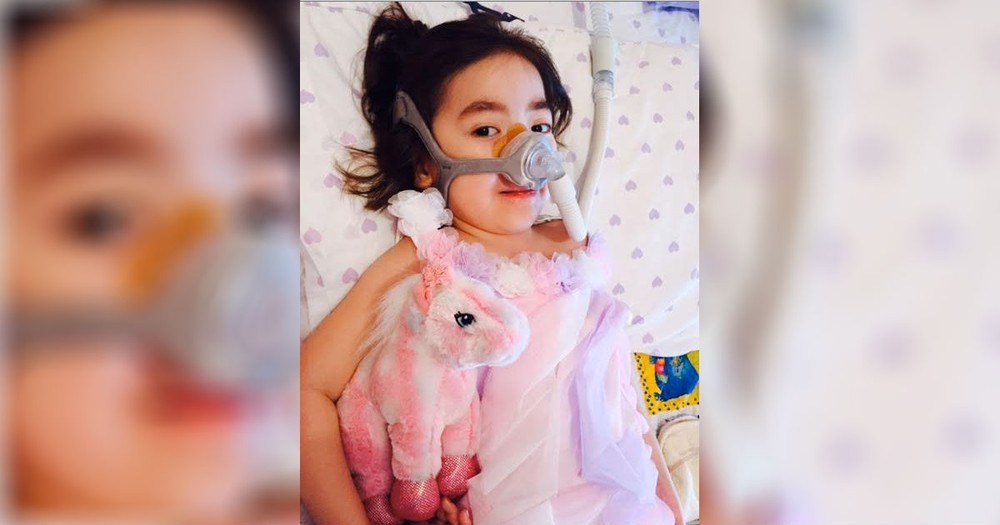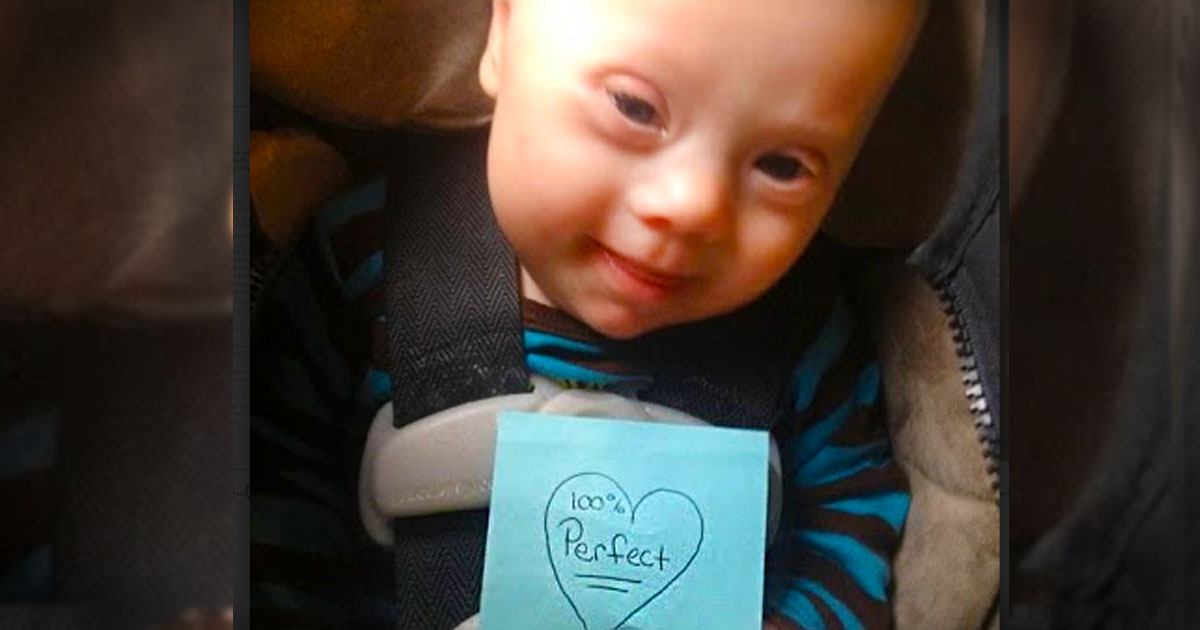We’re All Perfect In His Eyes
Kids say the darnedest things, don’t they? Sometimes their journey to make sense of the world can be incredibly adorable. Other times, however, it can be downright embarrassing!
When kids see something or someone that is different than what they are used to, they can’t help but ask questions. They aren’t trying to be mean. Their questions stem from genuine curiosity. Their observations are just that - observations. They are not making judgements. They are just trying to learn about the world around them and why things are the way they are. But regardless of their intentions, sometimes children’s curiosity can be hurtful.
As a mother of two little ones, I’ve definitely had my fair share of awkward encounters thanks to my kids’ curiosity. And maybe that’s why the following blog post on Blessed by Brenna jumped out at me. But it helped me to realize that our reactions as adults, even if well intentioned, can be just as hurtful as the blunt comments that sometimes come out of our children’s mouths.
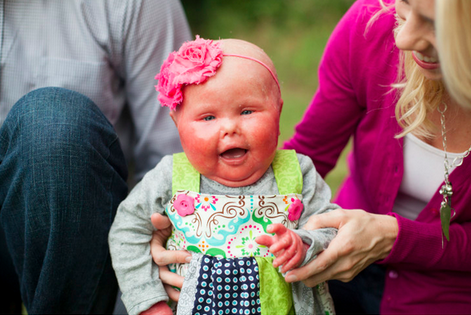
Credit: Blessed By Brenna
Courtney Westlake’s daughter, Brenna, was born with a rare but severe skin disorder called Harlequin Ichthyosis. This disorder has left Brenna with very little hair, and deep red skin that constantly peels. And so, Courtney has become used to the fact that people will stare and children will make comments when she and Brenna are in public. And her advice to those who stare is a wonderful and moving lesson to us all on how to avoid making a bad situation worse.
“As we enter the playground area, your child immediately points to mine, calling loudly “Mom, look at HER!” You quickly hush him, calling him to you to quietly reprimand him.
You’re at the end of the same grocery store aisle when your child catches a glimpse at the baby in my cart and asks, “Why is that baby so red?” You practically put your hand over his mouth to stop as much of the question as you can while hurrying around the corner without looking back.
Your children freeze, staring open-mouthed at my daughter at the library, and you get a rising panic in your eyes as you try to distract them to look anywhere but.
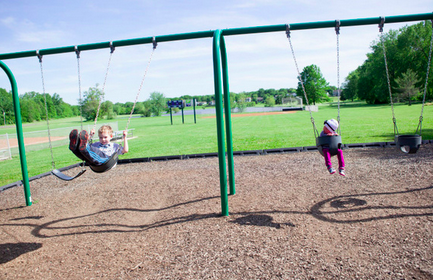
Credit: Blessed By Brenna
I recognize all of this unfolding, nearly every day. I hear all of the questions, I glimpse all of the pointing out of the corner of my eye, I notice all of the whispered comments.
I hear you, and I see you, and I feel it all, deep within my heart. And it makes it worse when you then try to “hide” it from me, from us.
You’re embarrassed, and I understand that. But we’re both parents, trying to do our best, and we both love our kids fiercely. And when you try to hide these obvious conversations that are happening right in front of us, it feels like you’re hiding from our family. It feels like the small, insignificant gap between us that your child has noticed has now grown into a wide-spanning canyon that no one wants to cross.
Here’s what I wish you would do.
I wish you would invite us into these conversations about us.
I wish you would close that small gap by relating to us as you would to any other family on the playground, instead of making the gap bigger by treating us as unapproachable.
When your child points and tells you to look, I wish you would respond clearly, “Yes, look at that pretty little girl. It looks like she’s having so much fun playing, just like you are!”
When your child asks you, “Why is that baby so red?” or “Why does she look like that?” I wish you would answer honestly: “I’m not sure, but the way someone looks isn’t important. We all look different from each other, don’t we?”
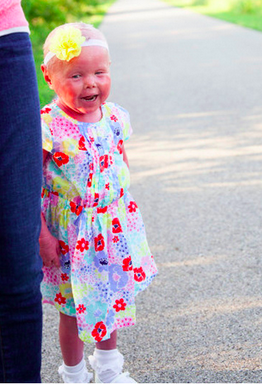
Credit: Blessed By Brenna
I wish you would encourage your child to say hi and to ask my kids’ names.
I wish you would apologize without feeling ashamed if your child is offensive right in front of us: “I’m so sorry, we’re still learning how to ask questions respectfully.” It also goes a long way if you tack on: “Your daughter is so cute, how old is she?”
And above all, I wish you would talk about differences more often. I wish you would read to your child about differences, and I wish you would positively and naturally converse about various kinds of differences, from wheelchairs to birthmarks, from Down syndrome to ichthyosis, from racial differences to wearing glasses. Ultimately, I hope that our children learn that if they have questions about someone’s appearance, they can ask you later, privately, so that they don’t hurt anyone’s feelings – because, after all, how we treat each other is much more important than how someone looks.
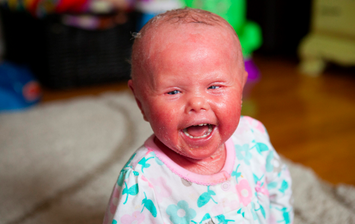
Credit: Blessed By Brenna
So next time, I hope you don’t hide. I hope you invite us into your conversation. Instead of a steep divide that places our family on the other side with a “do not look at and do not talk to” sign, I’d rather be a positive opportunity for your child to learn how to respect and appreciate physical differences.”
God created us all differently and we are all beautiful in His eyes. That is an important lesson to teach our children and others. But the greatest lessons are not taught through words, but rather actions. And I think this mom has given us all wonderful advice on just how we can act with grace towards those that are different from us.
"But the LORD said unto Samuel, ‘Look not on his countenance, or on the height of his stature; because I have rejected him: for the LORD seeth not as man seeth; for man looketh on the outward appearance, but the LORD looketh on the heart.’" 1 Samuel 16:7
This mother addresses comments about her down syndrome son.
1 Samuel 16:7
Credit: Blessed by Brenna
Our differences are beautiful, not wrong. This mother proves that.

